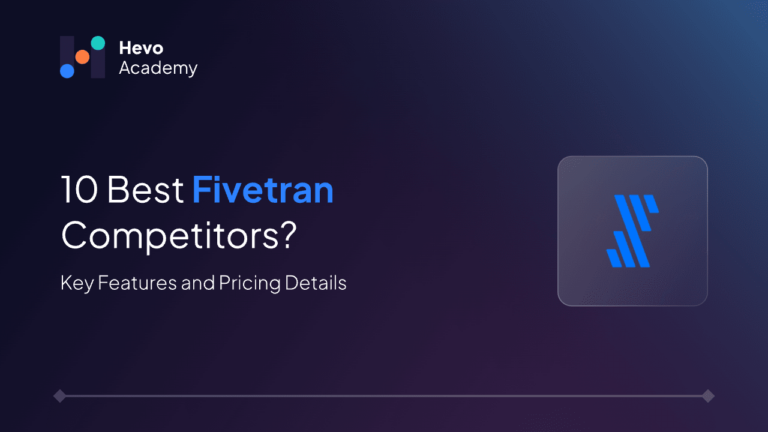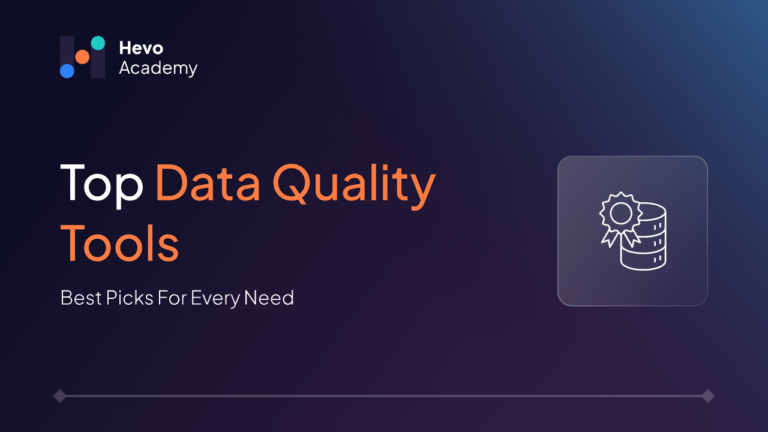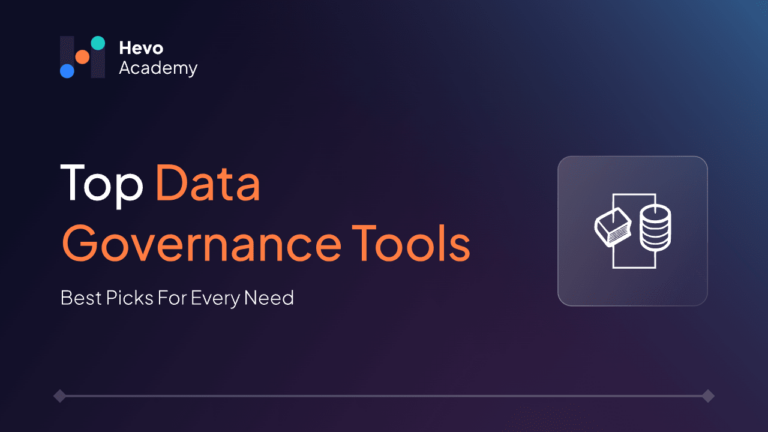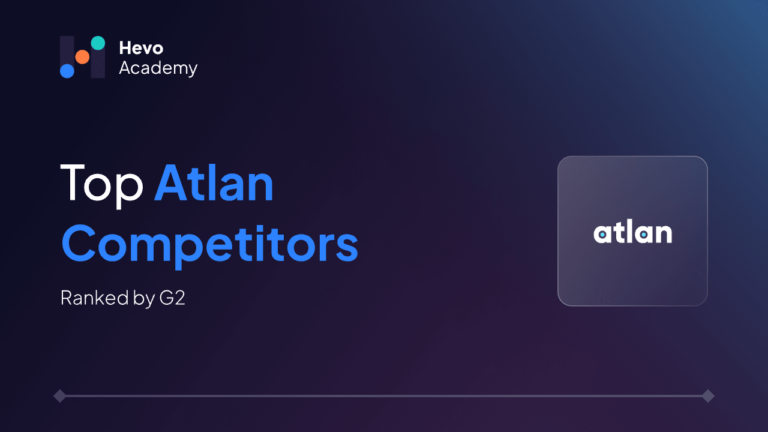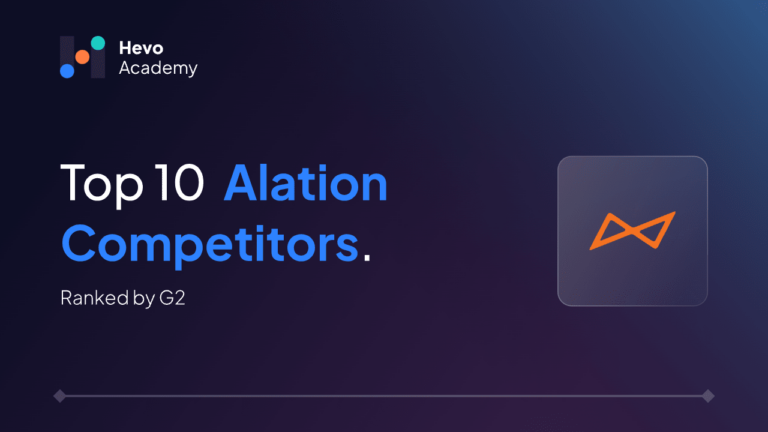Fivetran has changed the face of data integration through the automation of building and maintaining data pipelines, thus making it easier for organizations to synchronize their data across platforms. As data needs to grow and diversify, many companies seek alternatives that offer more flexibility, customization, or cost-effectiveness.
Table of Contents
Curious about a new data integration platform? This blog includes the 10 best Fivetran Competitors and Alternatives and compares them based on their performances, features, and costs. With more dependence upon data, companies want increasingly robust ETL tools capable of achieving business objectives that are fast growing in line. This guide will help you find the top Fivetran Alternatives and the best choice for 2025.
Top 10 Fivetran Competitors and Alternatives
1. Hevo Data

Hevo offers a highly intuitive, no-code data integration platform that not only makes data ingestion easier but also provides robust real-time data sync and advanced transformation capabilities. Unlike Fivetran, Hevo is the most flexible when it comes to pricing and customization; hence, it is great for businesses looking for an adaptive solution to meet specific needs in their data pipeline as it supports 150+ ready-to-use integrations across databases, SaaS Applications, cloud storage, SDKs, and streaming services.
Key Features:
- Automatic Data Quality Checks: This is automatically done by Hevo so that users can trust the data entering analytics and reports.
- Custom SQL Transformations: Hevo allows users to run custom SQL transformations for complex data processing, which adds a degree of flexibility to the process of data transformation.
- Data Pipeline Monitoring: Real-time monitoring and dashboards provide visibility into pipeline performance. One can quickly diagnose pipeline issues and make adjustments accordingly.
Pricing:
Hevo’s pricing model is flexible, and user based that fits businesses of all sizes.
- Free Plan: It is for small teams and minimal data.
- Starter Plan: It is for general integration and medium-sized data needs.
- Business Plan: It includes heavy data usage with advanced features for bigger volumes.
- Enterprise Plan: It includes Custom pricing, all the features, and dedicated support for large enterprises.
2. Rivery

Rivery is a cloud-native data integration platform that simplifies the creation of ETL and ELTs using its no-code interface. Renowned for flexibility and speed, Rivery allows businesses to centralize data from a multitude of sources.
Key Features:
- ELT and ETL Flexibility: It also supports both the ELT and ETL workflows that offer flexibility over different kinds of data processing needs
- Data Orchestration: It enables its users to schedule and even automate complex data workflow so as to ensure efficient, timely data operations.
Pricing:
Rivery pricing model is based on the number and volume of data rivers; therefore, all sizes can be supported. Their unique pricing unit is called the RPU or Rivery Pricing Unit, which offers a clear understanding of the cost, ranging between $1,000 and $3,000 per month based on data volume and execution needs.
3. Stitch Data

Stitch is a very powerful ETL service that makes data integration easy by extracting, loading, and transforming data directly from various sources. Coupled with an intuitive user interface and hundreds of built-in connectors, Stitch simply makes it easier for teams to streamline their data workflows.
Key Features:
- Connectors: More than 130 pre-built connectors to the most popular data sources for a smooth pipeline.
- User-Friendly Interface: With simple setup procedures, a user can establish data pipelines quickly.
- Automated Data Replication: Scheduled and real-time data replication ensures the data is always current and trustworthy.
Pricing:
Stitch’s pricing model suits all budgets and organizational sizes. New users may test Stitch with an unlimited free 14-day trial. The standard plans range from $100 to $1,250 per month based on the data needs scale.
4. Airbyte

Airbyte is an open-source data integration platform that would allow for the customization of connectors and data pipelines; it supports a huge and expanding library of connectors, making it suitable for syncing data from multiple sources to multiple destinations.
Key Features:
- CDC: Supports CDC to capture incremental data updates and thus reduces the load of data.
- Scheduling and Monitoring: Has some Built-in tools to schedule data syncs and monitor pipeline health.
- Support: Airbyte is compatible with both cloud and on-premises environments.
Pricing:
Airbyte’s pricing includes a free, open-source version, while Airbyte Cloud offers a credit-based pricing model based on volumes and the type of data, like APIs and databases. In addition, it offers an Enterprise plan with fixed contracts for high-volume needs.
5. Talend

Talend is an integrated data management platform that provides a range of tools for data integration, quality, and governance. Talend offers flexibility in cloud, multi-cloud, on-premises, and hybrid environments to ensure accessible and trusted data for analytics.
Key Features:
- Data management: It offers data integration, quality, and governance on one platform.
- Connectors: It offers preset various connectors that provide wide connector support, which gives easy and unproblematic access to the data.
- Flexible Deployment: The platform can either be installed in on-premises, cloud, or hybrid environments.
Pricing:
Talend’s pricing begins at around $12,000 annually, depending on the features and services selected.
6. Debezium
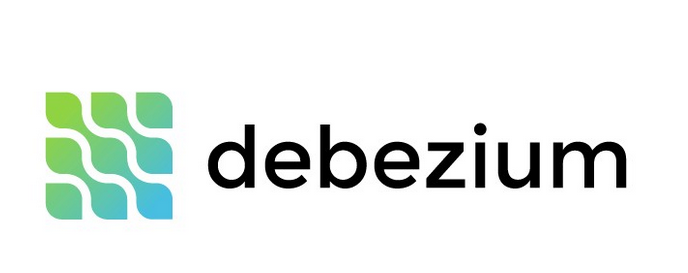
Debezium is an open-source CDC platform that streams database changes in real-time. It instantly connects with data infrastructures, such as Apache Kafka, so users can track database changes and respond to them as quickly as possible.
Key Features:
- Instant Change Capture: Synchronizes database changes through real-time streaming.
- It supports multiple databases, such as MySQL, PostgreSQL, MongoDB, etc.
- Seamless Kafka Integration: Complements Apache Kafka for good data streaming.
Pricing:
Debezium is an open-source tool(free to use) for change data capture (CDC), allowing real-time streaming of database changes without altering the underlying data structures.
7. Matillion

Matillion is the most robust data integration application that offers services for specific cloud-based ETL or Extract, Transform, and Load operations, making the process more efficient for data management and transformation in various organizations.
Key Features:
- Cloud-native design: optimized for cloud environments for scalability and performance
- User-friendly interface: no-code and low-code to easily create workflows
- Wide connectivity: many pre-built connectors for seamless data integration
Pricing:
Matillion includes three pricing models as follows:
- Basic plan: The basic plan starts with $2.00 in credit, and you cannot buy less than 500 credits per month.
- Advanced Plan: This plan starts at $2.50 per credit with a minimum of 750 credits per month.
- Enterprise Plan: This costs $2.70 per credit and a minimum purchase of 1,000 credits per month.
8. Portable

Portable is a modern ELT tool that facilitates the integration of data in companies. It enables the centralization of data coming from various applications and thus makes it easier to build a holistic view of customer interaction and optimize marketing strategy.
Key Features:
- 300+ Pre-Built Connectors: Offers thousands of no-code connectors across different business applications, ensuring data integration is easy and efficient.
- Custom Connector Development: Free development of new connectors on-demand. Businesses can connect to unique or less common data sources without additional costs.
Pricing:
Portable.io pricing model offers three very simple core plans. The Starter package will be $290/month, and Scale will be $1,490/month. Finally, there is a custom Growth package based on an actual business need.
9. Integrate.io
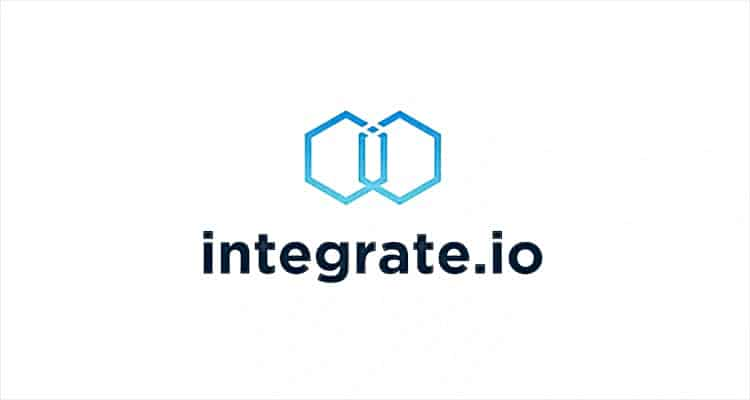
Integration.io is a data integration platform that allows businesses to streamline the integration of various data sources into one system. It can automate data workflows so information is easily available and up to date across numerous applications.
Key Features:
- Multi-cloud connectivity: It supports many pre-built connectors for easy data integration.
- Automated workflows: Data will be automatically transferred and transformed.
- Ease of Use: Easy to manage workflows without any necessity to code.
Pricing:
Integrate.io pricing packages range from the starter to professional, expert, business, and enterprise. In more detail, the price ranges are as follows:
- Starter Plan: $2.99 per credit, 55 credits, and two connectors.
- Professional Plan: $0.62 per credit and comprises 4,800 credits.
- Expert Plan: This package costs $0.83 per credit and consists of 6,000 credits.
- Business Plan: Price customized according to the particular business needs.
10. Airflow

Apache Airflow is an open-source, programmatically accessible platform to help manage complex workflows using a code-first approach. The product enables users to define, execute, and monitor data pipelines using DAGs. It helps manage tasks with complex dependencies and scalable requirements in different environments.
Key Features:
- Code-First Approach: workflows are defined with Python code, making version control easy and efficient.
- Scalable: It can scale to a single server or extend to thousands of nodes as needed and still can handle loads of tasks very efficiently.
- Extensive Integration: It integrates well with many plugins and even with more external systems.
Pricing:
Apache Airflow is an open-source software for scheduling and monitoring workflows, including creating data pipelines. Though Airflow itself is free to use, there are costs for running it in the form of infrastructure, resources, and any third-party services you would use.
Conclusion:
Businesses continue their shift toward efficient data integration. Thus, reviewing Fivetran competitors and alternatives is essential because, whereas Fivetran thrives on its automated pipelines reputation, there are other applications such as Hevo, Stitch, Airbyte, or Talend, which boast different features and varied pricing structures to suit an organization’s needs.
This guide would help companies to know more about the Fivetran competitors and alternatives . It will also help companies to look upon and optimize to direct their data management toward making the right tools necessary to drive insights and enable them to make the right decisions that could guide them in navigating and understanding 2025 and beyond.
Try Hevo for no-code, zero-maintenance data integration, and keep your data teams up to date. Sign up for a 14-day free trial today.
FAQs
1. Is Fivetran serverless?
Fivetran is a serverless data integration platform. They automate all aspects of infrastructure as well as scaling, giving end users the freedom to only worry about their data integrations.
2. Is Airbyte better than Fivetran?
Whether Airbyte is better than Fivetran depends on particular use cases and organizational needs. Airbyte provides flexibility and more control in the open-source model, but Fivetran is a great one with ease of use and automation of connectors with minimal maintenance.
3. Is Fivetran an ETL or ELT tool?
Fivetran is often considered an ELT tool. That’s because, instead of a transformation followed by loading to the warehouse, data from several sources is extracted and loaded into the Data Warehouse for transformation.

